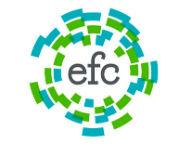Faculty News
—
Professor Stephen Brown's joint research on hedge fund managers and auto purchases is featured
—

Excerpt from The Atlantic -- "The researchers, Stephen Brown, Yan Lu, Sugata Ray, and Melvyn Teo, began with a hypothesis about a psychological trait called “sensation seeking.” As they write, the trait is 'defined by the seeking of varied, novel, complex, and intense sensations and experiences, and the willingness to take physical, social, legal, and financial risks for the sake of such experience.' Major sensation seekers, in other words, are the sort of people who probably make for good Hollywood protagonists, and they are more likely to step outside the law. Among other correlates established by earlier research, people with the trait are less careful with spending and engage in risky driving. So when their disposable incomes start to swell, the researchers reasoned, they are more likely to stop by a Ferrari showroom than a Subaru lot."
Faculty News
—

Excerpt from The Atlantic -- "The researchers, Stephen Brown, Yan Lu, Sugata Ray, and Melvyn Teo, began with a hypothesis about a psychological trait called “sensation seeking.” As they write, the trait is 'defined by the seeking of varied, novel, complex, and intense sensations and experiences, and the willingness to take physical, social, legal, and financial risks for the sake of such experience.' Major sensation seekers, in other words, are the sort of people who probably make for good Hollywood protagonists, and they are more likely to step outside the law. Among other correlates established by earlier research, people with the trait are less careful with spending and engage in risky driving. So when their disposable incomes start to swell, the researchers reasoned, they are more likely to stop by a Ferrari showroom than a Subaru lot."





















